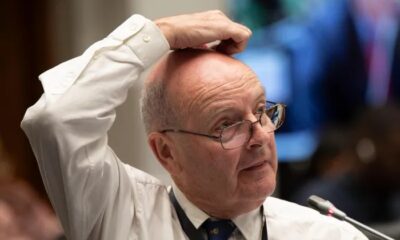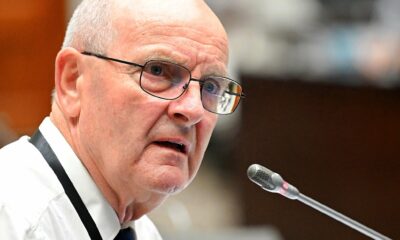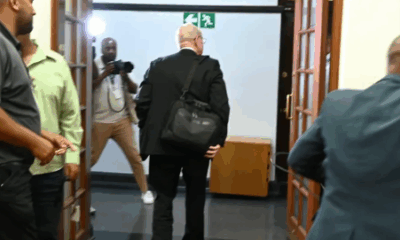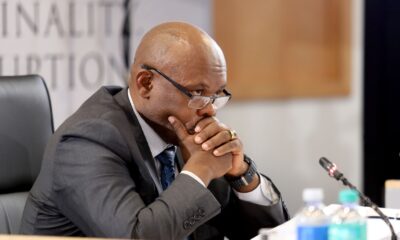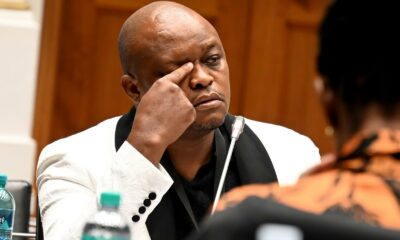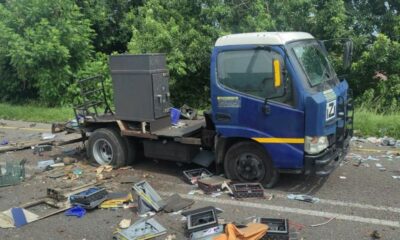News
Mkhwanazi Defends Media Remarks: ‘I Was Calling for Accountability, Not Censorship’
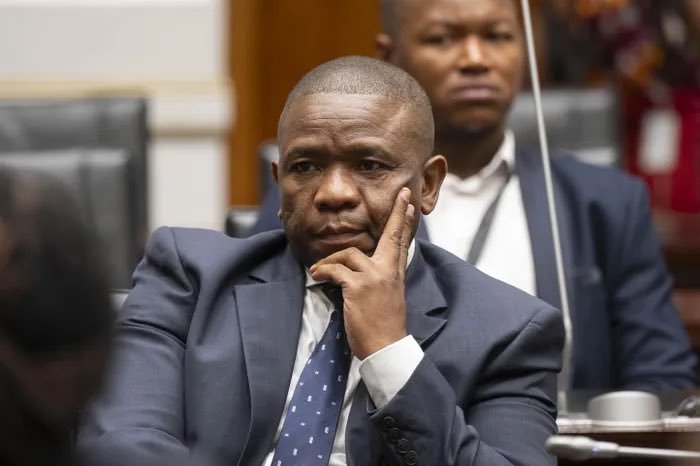
Mkhwanazi Pushes Back After Media Uproar: “I Respect the Press, But Rights Go Both Ways”
KwaZulu-Natal Police Commissioner Lieutenant-General Nhlanhla Mkhwanazi has stepped forward to address the media storm sparked by his recent remarks about journalists and he insists he’s being misunderstood.
In an interview with IOL this week, Mkhwanazi said he fully supports a free and independent press, but believes journalists should also face scrutiny when they undermine other constitutional rights, particularly human dignity.
“I appreciate the work of many journalists and the media’s role in society,” he said. “But the Bill of Rights protects human dignity. When I spoke in Parliament, I was calling for the state to ensure those rights are protected, even when journalists violate them. I’ve personally been a victim.”
The Flashpoint: Parliament Comments and Media Backlash
The controversy began after Mkhwanazi addressed an ad hoc parliamentary committee last week. He suggested that journalists who spread misinformation or push personal agendas, citing outlets like News24, City Press and Sunday Times, should be investigated by crime intelligence and face legal consequences if found guilty.
These comments were quickly condemned by the South African National Editors’ Forum (SANEF), which accused him of calling for media repression and criminalising journalism.
SANEF said his suggestions “threaten media freedom” and reflect an “authoritarian misunderstanding of how the press functions in a democracy.”
“Not Censorship, Accountability,” Says Mkhwanazi
In response, Mkhwanazi is adamant that his statements have been misrepresented.
“The law permits investigations when people infringe constitutional rights. This applies to everyone, journalists included and it must happen without fear or favour. Everything I said was within the parameters of the law.”
He was quick to distance himself from any suggestion that he is trying to police the media.
“I am not a politician, nor do I hold executive authority. It is up to the state to decide whether and how rights are protected. I’m not demanding journalists be jailed, I’m saying violations should not be ignored.”
Freedom of Expression vs Human Dignity, The Tension
South Africa’s Constitution fiercely protects both free speech and human dignity, and local media lawyers say this is exactly where the friction lies.
Mkhwanazi argues that while the press plays a watchdog role over the powerful, journalists are not exempt from accountability when reporting causes harm.
But critics fear his comments could embolden officials who already view the press as an enemy rather than a partner in democratic oversight.
Public Reaction: Mixed but Concerned
On social media, reaction has been split:
-
Some users, especially those wary of “media bias” defended Mkhwanazi’s stance, saying journalists should face consequences when they “cross the line.”
-
Others called his remarks “dangerous,” warning that state-led investigations into newsrooms echo apartheid-era tactics and the more recent treatment of journalists in Zimbabwe, Uganda and Ethiopia.
Media academics say this moment is a test of South Africa’s democratic maturity: can the country defend press freedom while still allowing for responsible criticism of the media?
The Bigger Picture
This isn’t the first time a senior official has clashed with media houses, but Mkhwanazi’s comments are notable because they came from a law enforcement leader, not a politician.
His call for “crime intelligence” to get involved raised eyebrows, with editors arguing that it blurs the line between oversight and intimidation.
Still, his tone in the IOL interview suggests he is trying to walk back the impression of hostility.
“I’m not against journalists. I’m against the abuse of any right, including by the media.”
The debate is far from over. For many South Africans, especially in the wake of state capture and police corruption scandals, a free press remains non-negotiable. But Mkhwanazi is tapping into a growing sentiment that not all media conduct is beyond reproach.
The real question now is not whether journalists should be held to ethical standards but who decides when they’ve crossed the line, and how any wrongdoing should be addressed in a constitutional democracy.
If you’d like a follow-up angle (e.g. SANEF response analysis, political reactions, or historical context of media vs state), just say the word and I’ll draft it immediately.
{Source: IOL}
Follow Joburg ETC on Facebook, Twitter , TikTok and Instagram
For more News in Johannesburg, visit joburgetc.com

